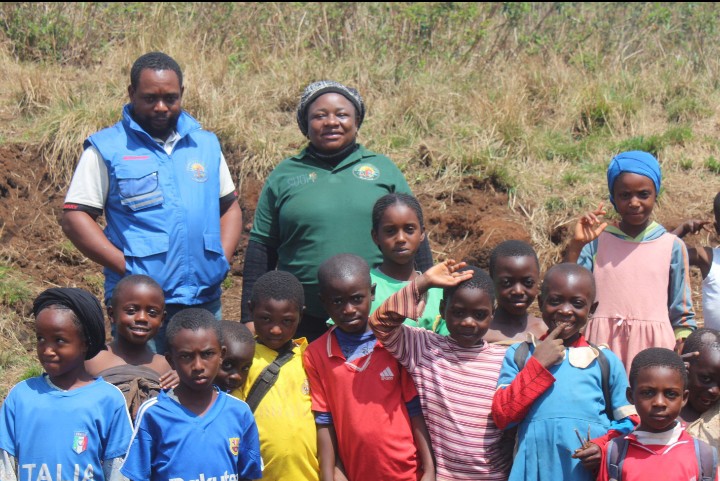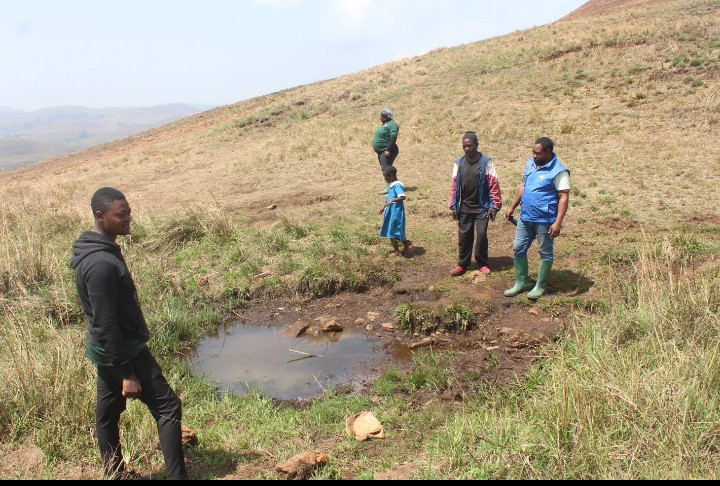
The well-being of over 1,000 pupils and teachers in Bih village, Nkambe Sub-Division, Donga Mantung, Northwest Region of Cameroon, is being restored by Ecological Balance Cameroon through its ongoing Landscape Water Revamping Project. This initiative is tackling the water crisis facing the community by ensuring a sustainable water supply for the Bih village school.
The primary source of water for the Bih school community, a natural catchment area, is becoming alarmingly depleted due to a lack of surrounding trees. This barren landscape is exposing the water source to harsh elements, animal intrusion, and increased evaporation. This is significantly impacting the water retention capacity of the catchment, leading to its drying and jeopardizing the well-being of over 1,000 people.

Eco Balance, with funding from WRLD US through the Milky Wire Foundation, is bringing hope to Bih village. The organization is embarking on a project to rewild the catchment area with native trees. This initiative goes beyond simply rehabilitating the water supply. It aims to revive the local ecosystem and promote water retention, ensuring a sustainable water supply for the Bih village school.
“Rehabilitating watersheds is crucial for the environment and the well-being of our communities,” says Benardin Njiafu, head of Operations at Ecological Balance Cameroon. “Trees act as natural filters, improve water quality, and regulate water flow. By reforesting the catchment area, we can ensure a steady supply of clean water for the students and teachers of Bih village.”
Eco Balance’s intervention highlights the critical role of watershed management in Cameroon. With climate change posing a growing threat to water security, proactive measures like reforestation are essential. This project is safeguarding vital water resources not just for the present generation of students and teachers but also for future generations.
By restoring the Bih village catchment area, Eco Balance is not only providing clean water but also investing in the long-term health and well-being for the community.